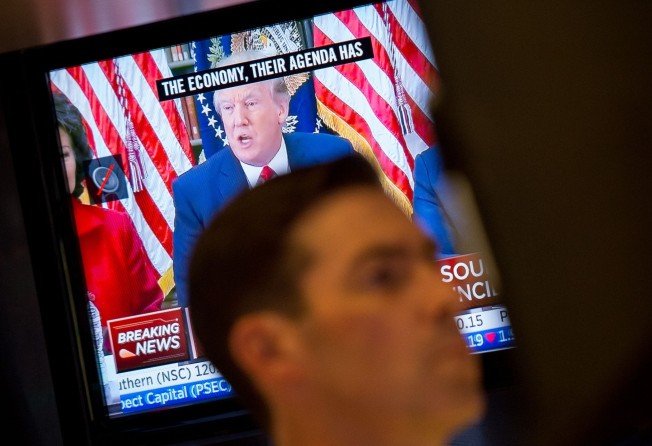Most ‘unloved’ stock market rally in history could have further to run

The dramatic escalation in tensions on the Korean peninsula, Donald Trump’s crisis-ridden presidency, the withdrawal of monetary stimulus by leading central banks, the risk of political instability in Italy, and the list goes on.
There is no shortage of issues for international investors to fret about as the summer holidays draw to a close and traders return to their desks.
Yet global equity markets, while having proved more volatile over the past few months, are hovering near record highs.
The MSCI All-Country World Index, a leading gauge of stocks in developed and developing economies, is just a whisker below its latest all-time high set in early August. Last week, the Nasdaq Composite, the technology-heavy US equity index, enjoyed its best weekly performance so far this year and reached a fresh record high, buoyed by a sharp rise in the shares of Apple ahead of next week’s launch of the new iPhone.
While stocks, in particular US equities, fell on Tuesday as part of a renewed rush into so-called “haven assets” in response to the deepening standoff between Pyongyang and Washington, heightened geo-political tensions have had only a modest impact on sentiment.
As equity investors continue to climb an ever steeper “wall of worry”, a net 46 per cent of investors believe global stock markets have become overvalued – a record high, according to a monthly fund manager survey compiled by Bank of America Merrill Lynch. The most unloved bull market in history has yet to turn into a sharp and sustained sell-off.
To be sure, there are growing signs that equity markets – in particular US shares which are much more expensive than their European and emerging market peers – may finally be about to suffer a major correction.
Firstly, market conditions are becoming more volatile. This is making investors nervous after months of tranquility. Appetite for derivative contracts that help shield investors’ portfolios from a sharp drop in the benchmark S&P 500 index – which has risen a further 10 per cent so far this year but has recently lost momentum and is down 0.6 per cent over the past month – has risen significantly of late. The so-called SKEW Index of the Chicago Board Options Exchange, a gauge of equity investors’ concerns about “tail risk” (major events which could unsettle markets), has risen above its long-term average of 117 points.
Secondly, investors are more concerned about corporate earnings mainly because of waning confidence in Trump’s ability to deliver a meaningful economic stimulus package. According to the fund manager survey, only 33 per cent of investors believe global corporate profits will improve over the next year, down from nearly 60 per cent at the start of this year.
Thirdly, and perhaps most importantly, ultra-loose monetary policies are coming to an end. Given that quantitative easing programmes were a boon for stock markets, the withdrawal of stimulus is very likely to put equities under strain.
Yet there are powerful forces at play that could drive stocks higher – or at least prevent a full-blown bear market from taking root.
The most important one, as I explained in an earlier column, is the “buy the dip” strategy that has dominated trading in stock markets in recent years. Investors continue to treat every sell-off as a buying opportunity on the basis that previous declines in share prices have been swiftly followed by rallies. Last month, investors increased their bets that the recent turbulence in equity markets will abate. Shorting, or selling, volatility remains one of the most popular and financially rewarding trades in markets.
Another reason why the rally in stocks may not yet have run its course is that correlations between asset classes – equities, bonds and currencies – and within equities themselves have broken down significantly. This means that bad news in one region of the world, or in a particular sector, no longer causes markets to sell off in unison. This is a godsend to traditional stock-pickers who focus on country and sector-specific corporate fundamentals, and is underpinning confidence in equity markets.
A third reason why stock valuations could remain high is the persistently low yields on government bonds, which are supporting equity valuations. Even though the Federal Reserve is raising interest rates, the yield on benchmark 10-year US sovereign debt is 30 basis points lower than at the start of this year. In Europe, meanwhile, nearly 30 per cent of government bonds in the eurozone are trading with negative yields, according to JPMorgan.
For one of the most hated bull markets in history, these are remarkably compelling reasons why equities could keep rising. Stock market bears may be in for a surprise.
Nicholas Spiro is a partner at Lauressa Advisory